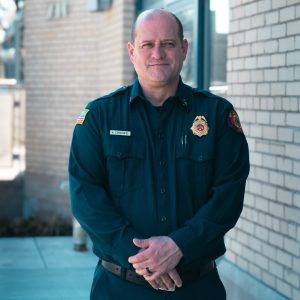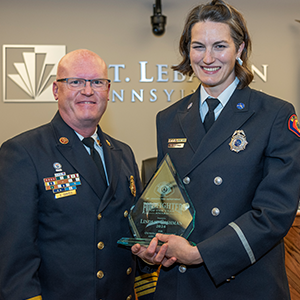Firefighters get new training facility

he Mt. Lebanon Fire Department, like most departments, has long struggled to find realistic live burn training opportunities. The opportunities for controlled live burns, where firefighters practice their skills in a donated house, are few and far between. The department can schedule time at one of the two local fire academies, in North Park and in Washington County, but it has to get in line with more than 100 other fire companies. Travel time to these facilities also can be challenging.
The cost of a dedicated training facility has long been a stumbling block. A purpose-built cinder block facility with special flame-resistant lining costs in the neighborhood of $2.5 million to $3 million. In the past few years, however, companies have been building training facilities from refurbished shipping containers, which cost a fraction of the price of a cinder block building.
In 2023, the Mt. Lebanon Commission approved plans for a fire training facility to be built on the public works campus, 1250 Lindendale Drive.
Cost of construction for the facility, including site preparation, was $1.475 million. State Rep. Dan Miller, a former Mt. Lebanon volunteer firefighter, secured a $200,000 state grant to help pay for the facility, and the Mt. Lebanon Volunteer Fire Company donated another $100,000. Miller also worked with state Sen. Wayne Fontana to receive a $621,300 grant from the state’s Commonwealth Financing Authority.
The primary intent of the fire training facility is not live-fire training, but skill review and enhancement, with the department scheduling just a few live burns a year. During the live burns, the department will adhere to strict standards:
A minimum of one week notification of residents located within 400 feet of the facility.
Materials that can be burned are limited to wood pallets, plywood and straw, and the amount is limited to four sheets of plywood.
If weather conditions cause the smoke generated by the training to stay low or travel in a direction in which it is detrimental to the community, the training must be stopped and rescheduled.
The department has already been using the public works facility for training, typically about 18 times a year. To limit the potential for any noise that would disrupt residents, training will not be scheduled before 8:30 a.m. and will be complete by 9:30 p.m.





